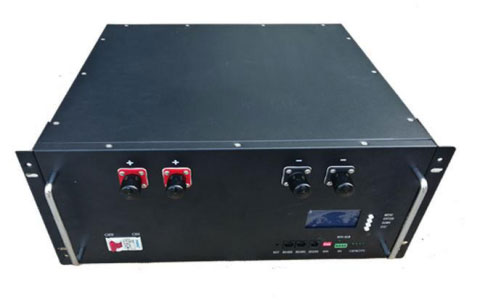에너지 저장 혁명: 리튬 배터리 발전소의 부상
소개
In recent years, the global energy landscape has witnessed a remarkable shift towards renewable energy sources. As reliance on renewable energy grows, there is an urgent need for effective energy storage solutions to address the intermittent nature of these sources. Lithium-ion batteries have emerged as a game-changing technology in the field of energy storage, paving the way for the establishment of lithium battery power stations. This article explores the rise of lithium battery power stations and their potential to revolutionize energy storage.
The Need for Energy Storage
Renewable energy sources such as solar and wind power have gained significant traction due to their environmental benefits and decreasing costs. However, these sources are inherently variable and depend on external factors like weather conditions. To ensure a reliable and consistent energy supply, efficient energy storage technologies are essential. Traditionally, pumped hydroelectric storage and compressed air energy storage systems have been used, but they have limitations in terms of scalability and geographical requirements. Lithium-ion batteries offer a more versatile and scalable solution.
The Emergence of Lithium Battery Power Stations
Lithium-ion batteries have revolutionized the portable electronics industry, powering smartphones, laptops, and electric vehicles. With advancements in battery technology and declining costs, large-scale energy storage using lithium-ion batteries has become economically viable. This has led to the emergence of lithium battery power stations, which integrate multiple battery packs to store and supply electricity on a grid-scale level. These power stations are capable of providing backup power during peak demand periods, smoothing out fluctuations, and optimizing the use of renewable energy sources.
Advantages of Lithium Battery Power Stations
Lithium battery power stations offer several advantages over traditional energy storage systems. Firstly, they have a higher energy density, allowing for more power to be stored in a smaller footprint. This is particularly beneficial in urban areas where space is limited. Secondly, lithium-ion batteries have a longer lifecycle and can withstand a large number of charge-discharge cycles, making them more durable and cost-effective in the long run. Additionally, lithium battery power stations can respond quickly to changes in demand, providing grid stability and reducing the need for fossil fuel backup power plants.
Applications and Benefits
Lithium battery power stations are finding applications across various sectors. One prominent application is in the integration of renewable energy sources into the grid. By storing excess energy generated during periods of low demand, lithium battery power stations can ensure a continuous supply of clean energy during peak demand. This helps reduce reliance on conventional power plants and promotes a greener and more sustainable energy mix. Furthermore, lithium battery power stations are being utilized for microgrid systems, providing localized power supply and enhancing grid resiliency.
Another significant benefit of lithium battery power stations is their ability to facilitate the electrification of transportation. As electric vehicles continue to gain popularity, the demand for fast and reliable charging infrastructure is increasing. Lithium battery power stations can serve as charging hubs, supplying electricity to a fleet of electric vehicles simultaneously. This helps address range anxiety and accelerates the adoption of electric transportation, contributing to a cleaner and greener future.
Challenges and Future Outlook
While lithium battery power stations offer great promise, there are challenges that need to be addressed. The extraction and processing of lithium present environmental concerns, and the recycling of batteries at the end of their lifecycle needs to be optimized. Additionally, the cost of lithium-ion batteries, although decreasing, remains relatively high compared to traditional energy storage options. Further advancements in battery technology and economies of scale are necessary to drive down costs and make lithium battery power stations more accessible.
결론
The rise of lithium battery power stations marks a significant milestone in the field of energy storage. These stations hold the key to revolutionizing the integration of renewable energy sources into the grid, enhancing grid stability, and promoting the electrification of transportation. Despite the challenges, the future looks promising for lithium battery power stations as technology continues to evolve and costs diminish. With their versatility, scalability, and environmental benefits, lithium battery power stations are poised to play a pivotal role in shaping the future of energy storage.
-
 군사 기술은 놀라운 속도로 계속 발전하고 있습니다. 크게 개선된 군사 장비의 중요한 측면 중 하나는 배터리 기술입니다. 특히 리튬 배터리는 더 오래 지속되는 전력, 향상된 에너지 밀도 및 향상된 효율성을 제공하여 군사 장비의 성능을 혁신했습니다. 리튬 배터리는 리튬 배터리에 비해 수많은 장점으로 인해 군용 애플리케이션에서 선호되는 선택이 되었습니다.더 읽어보세요
군사 기술은 놀라운 속도로 계속 발전하고 있습니다. 크게 개선된 군사 장비의 중요한 측면 중 하나는 배터리 기술입니다. 특히 리튬 배터리는 더 오래 지속되는 전력, 향상된 에너지 밀도 및 향상된 효율성을 제공하여 군사 장비의 성능을 혁신했습니다. 리튬 배터리는 리튬 배터리에 비해 수많은 장점으로 인해 군용 애플리케이션에서 선호되는 선택이 되었습니다.더 읽어보세요 -
 Lithium starter batteries have become increasingly popular in recent years due to their many advantages over traditional lead-acid batteries. In this article, we will explore the advantages of using a lithium starter battery in your vehicle. 1. Lightweight One of the most significant advantages of lithium starter batteries is their weight. Lithium batteries are significantly lighter than lead-acid...더 읽어보세요
Lithium starter batteries have become increasingly popular in recent years due to their many advantages over traditional lead-acid batteries. In this article, we will explore the advantages of using a lithium starter battery in your vehicle. 1. Lightweight One of the most significant advantages of lithium starter batteries is their weight. Lithium batteries are significantly lighter than lead-acid...더 읽어보세요 -
 As the world becomes more dependent on renewable energy sources, the need for efficient and reliable storage solutions becomes increasingly important. One potential solution lies in the use of LiFePO4 battery cells. LiFePO4, or lithium iron phosphate, is a type of lithium-ion battery that has gained popularity in recent years due to its high energy density and long cycle...더 읽어보세요
As the world becomes more dependent on renewable energy sources, the need for efficient and reliable storage solutions becomes increasingly important. One potential solution lies in the use of LiFePO4 battery cells. LiFePO4, or lithium iron phosphate, is a type of lithium-ion battery that has gained popularity in recent years due to its high energy density and long cycle...더 읽어보세요 -
 With the increasing demand for clean and sustainable energy solutions, lithium batteries have gained significant popularity in recent years. Among the various types of lithium batteries available in the market, the 100Ah Lithium Iron Phosphate (LiFePO4) battery stands out for its long-lasting power and numerous benefits. In this article, we will delve into the features and advantages of the 100Ah...더 읽어보세요
With the increasing demand for clean and sustainable energy solutions, lithium batteries have gained significant popularity in recent years. Among the various types of lithium batteries available in the market, the 100Ah Lithium Iron Phosphate (LiFePO4) battery stands out for its long-lasting power and numerous benefits. In this article, we will delve into the features and advantages of the 100Ah...더 읽어보세요 -
 When it comes to finding the right U series supplier for your industrial needs, there are several factors to consider. The U series refers to a range of bearings manufactured by various companies that are commonly used in industrial applications, including heavy machinery, automotive, and aerospace industries. Here are some key factors to consider when selecting a U series supplier...더 읽어보세요
When it comes to finding the right U series supplier for your industrial needs, there are several factors to consider. The U series refers to a range of bearings manufactured by various companies that are commonly used in industrial applications, including heavy machinery, automotive, and aerospace industries. Here are some key factors to consider when selecting a U series supplier...더 읽어보세요 -
 소개 기술이 발전함에 따라 안정적인 전원 공급 장치에 대한 필요성도 증가하고 있습니다. 대용량 12V 200Ah LiFePO4 배터리는 안정적인 전원이 필요한 모든 사람에게 탁월한 솔루션입니다. 이러한 유형의 배터리는 더 긴 수명, 더 나은 효율성 및 안전성을 제공하므로 많은 응용 분야에 이상적인 선택입니다. LiFePO4 배터리는 다른 유형의 배터리에 비해 수명이 더 깁니다...더 읽어보세요
소개 기술이 발전함에 따라 안정적인 전원 공급 장치에 대한 필요성도 증가하고 있습니다. 대용량 12V 200Ah LiFePO4 배터리는 안정적인 전원이 필요한 모든 사람에게 탁월한 솔루션입니다. 이러한 유형의 배터리는 더 긴 수명, 더 나은 효율성 및 안전성을 제공하므로 많은 응용 분야에 이상적인 선택입니다. LiFePO4 배터리는 다른 유형의 배터리에 비해 수명이 더 깁니다...더 읽어보세요 -
 A reliable car starter battery is essential for your vehicle performance. It provides the power necessary to start your engine, and it also supplies electricity to the electrical components in your car. Without a reliable car starter battery, your vehicle may not start, and you may experience electrical problems. There are several factors to consider when choosing a car...더 읽어보세요
A reliable car starter battery is essential for your vehicle performance. It provides the power necessary to start your engine, and it also supplies electricity to the electrical components in your car. Without a reliable car starter battery, your vehicle may not start, and you may experience electrical problems. There are several factors to consider when choosing a car...더 읽어보세요


